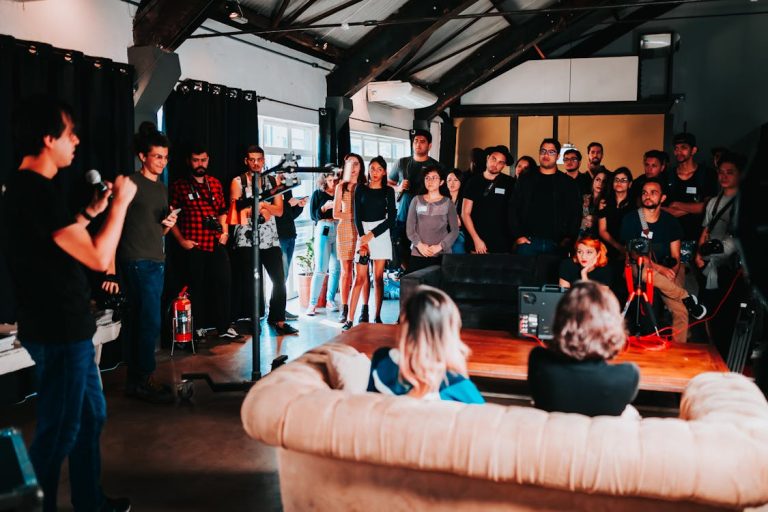Where Creativity Meets Innovation
Access Cutting-Edge Tools and Resources in Our Maker Lab to Bring Your Vision to Life.
Fostering Creativity
Our MakerLab is a fully equipped prototyping lab, designed to encourage hands-on learning and the creation of physical prototypes. Whether you’re building a hardware project, experimenting with IoT, or working on 3D printing, MakerLab offers the tools and environment you need to turn ideas into reality.
We are looking for students, entrepreneurs, and SMEs looking to prototype products or test new technologies. All innovators with a passion for design, digital manufacturing, and the maker movement are welcomed into our MakerLab.
Our Goals

Promote Innovation
Encourage individuals to experiment, prototype, and innovate through access to advanced tools and technologies.

Hands-on Learning
Provide a collaborative environment where participants can learn by doing and gain practical skills in fabrication and design.

Community Engagement
Foster a community of makers, creators, and innovators who collaborate, share knowledge, and inspire each other.

Support Entrepreneurship
Enable entrepreneurs to prototype their ideas, validate concepts, and refine products or services in a low-risk environment.
Resources and Facilities
Activities & Programs
Benefits
Workshops & Training
Hands-on workshops and training sessions on design, prototyping techniques, and the use of specific equipment.
Maker Challenges
Organize competitions and challenges that encourage participants to innovate and solve real-world problems.
Collaborative Projects
Facilitate collaborative projects where individuals or teams work together to create innovative solutions or artworks.
Community Events
Host events such as maker fairs, open houses, and guest speaker sessions to engage the community and showcase creations.
Creativity and Innovation
Stimulate creativity and foster innovation through hands-on experimentation and prototyping.
Skill Development
Enhance technical skills in design, fabrication, and prototyping, preparing participants for entrepreneurial ventures or careers in technology and design.
Entrepreneurial Support
Support entrepreneurs in developing and refining product prototypes, validating market fit, and preparing for production.
Collaboration and Networking
Build a network of like-minded individuals, mentors, and potential collaborators within the maker community and beyond.
Learn by Doing
At CIT HUB Maker Lab, we embrace a philosophy of “Learn by Doing,” providing an interactive and hands-on environment where participants can explore, experiment, and innovate. This section explores how this approach fosters learning, creativity, and skill development among makers, entrepreneurs, and students.
Philosophy of "Learn by Doing"

Experiential Learning
Emphasize learning through practical experiences, enabling participants to apply theoretical knowledge to real-world scenarios.
Active Engagement
Encourage active participation and problem-solving, empowering individuals to take ownership of their learning journey.
Iterative Process
Facilitate an iterative process of experimentation, feedback, and refinement to foster continuous improvement and innovation.
Collaborative Environment
Promote and support collaboration among participants, mentors, and experts to share knowledge, ideas, and skills.
Benefits
Required Skills
Successful participation in CIT HUB Maker Lab requires a diverse set of skills that encompass technical proficiency, creativity, collaboration, and entrepreneurial mindset. This section outlines the essential skills needed to thrive in the Maker Lab environment and make meaningful contributions to projects and initiatives.
What You'll Need
Technical Skills
Creative Skills
Entrepreneurial Skills
Soft Skills
- Prototyping Skills: Ability to conceptualize ideas and create physical or digital prototypes using tools such as 3D printers, laser cutters, CNC machines, or software-based prototypes.
- Software Development: Proficiency in programming languages such as Python, Java, JavaScript, C/C++, or frameworks like React, Angular, and Node.js for software development projects.
- Electronics and Circuit Design: Understanding of basic electronics, circuit design, PCB (Printed Circuit Board) layout, and soldering skills for hardware prototyping and IoT (Internet of Things) projects.
- CAD (Computer-Aided Design): Familiarity with CAD software (e.g., AutoCAD, SolidWorks, Fusion 360) for designing 3D models and mechanical parts.
- Design Thinking: Ability to apply design thinking principles to identify problems, ideate solutions, and iterate on designs based on user feedback and usability testing.
- User Experience (UX) Design: Understanding of UX principles and the ability to create intuitive and user-friendly interfaces for software applications and hardware devices.
- Graphic Design: Basic skills in graphic design software (e.g., Adobe Photoshop, Illustrator) for creating visuals, logos, and promotional materials.
- Problem-Solving: Strong analytical and problem-solving skills to tackle technical challenges and optimize designs or software functionalities.
- Project Management: Ability to manage projects effectively, set goals, prioritize tasks, and meet deadlines within a collaborative team environment.
- Business Acumen: Understanding of basic business concepts such as market analysis, customer validation, and value proposition development for entrepreneurial ventures.
- Communication: Clear and effective communication skills to articulate ideas, collaborate with team members, and present project outcomes to stakeholders.
- Collaboration: Ability to work collaboratively in a diverse team environment, share knowledge, and leverage collective expertise to achieve project goals.
- Adaptability: Flexibility and adaptability to learn new technologies, pivot project directions based on feedback, and respond to changing project requirements.

